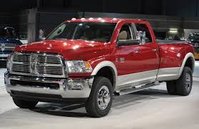
| (BPT) – As more manufacturers produce diesel vehicles for consumers, owners need to be aware of the issues that may occur during the cold winter months and learn how they can protect their vehicle. Gelling Cold weather can cause starting problems in diesel vehicles because the fuel tends to gel. Most consumers cannot control what kind of fuel they get at the pump. The recommended grade of diesel fuel for passenger vehicles is No. 2 which has some naturally occurring wax that crystallizes when the temperatures drop. The adverse effect is that the fuel does not flow as it should which can lead to filter plugging and cause hard starting. In states that have annual freezing temperatures during the winter, diesel fuel is “winterized” with No. 1 diesel at the distributor before it goes into the pumps. Anti-gelling additives One way to combat gelling is to use an anti-gelling additive like Royal Purple’s Max-Tane . Recommended for light, medium and heavy duty diesel engines, using the additive can improve engine start up in cold weather, improve cold flow by preventing gelling and will clean deposits from fuel injectors, combustion chambers, intake valves deposits and piston crowns. Basic maintenance It’s easy to forget that basic maintenance can prevent expensive repairs. Change your fuel filter. Using a dirty fuel filter can cause wax crystals to collect, cutting off the fuel. Change your motor oil and your oil filter. Depending on the climate where you live, consider changing the viscosity of your oil to help flow during the cold winter months. The “w” in the motor oil viscosity indicates the flow during winter months. Engine damage can occur if the motor oil is too thick due to the cold and the flow is restricted to the engine. While modern multi-viscosity motor oils are designed to work over a broad range of operating temperatures, you should check your owner’s manual for the recommended viscosity for winter temperatures. Check list Even if you don’t live in a cold climate, if your travels during the next few months take you through winter weather states, check the condition of your tires paying special attention to the tread. You will also want to inspect the condition of your belts and hoses looking for leaks and cracks. Finally,, make sure your windshield wipers are working properly. There is nothing worse than driving in the snow or battling sleet or slush without wipers. Winter weather shouldn’t keep you off the road but making sure your diesel vehicle is in good working condition will help ensure you arrive safely to your destination. |











